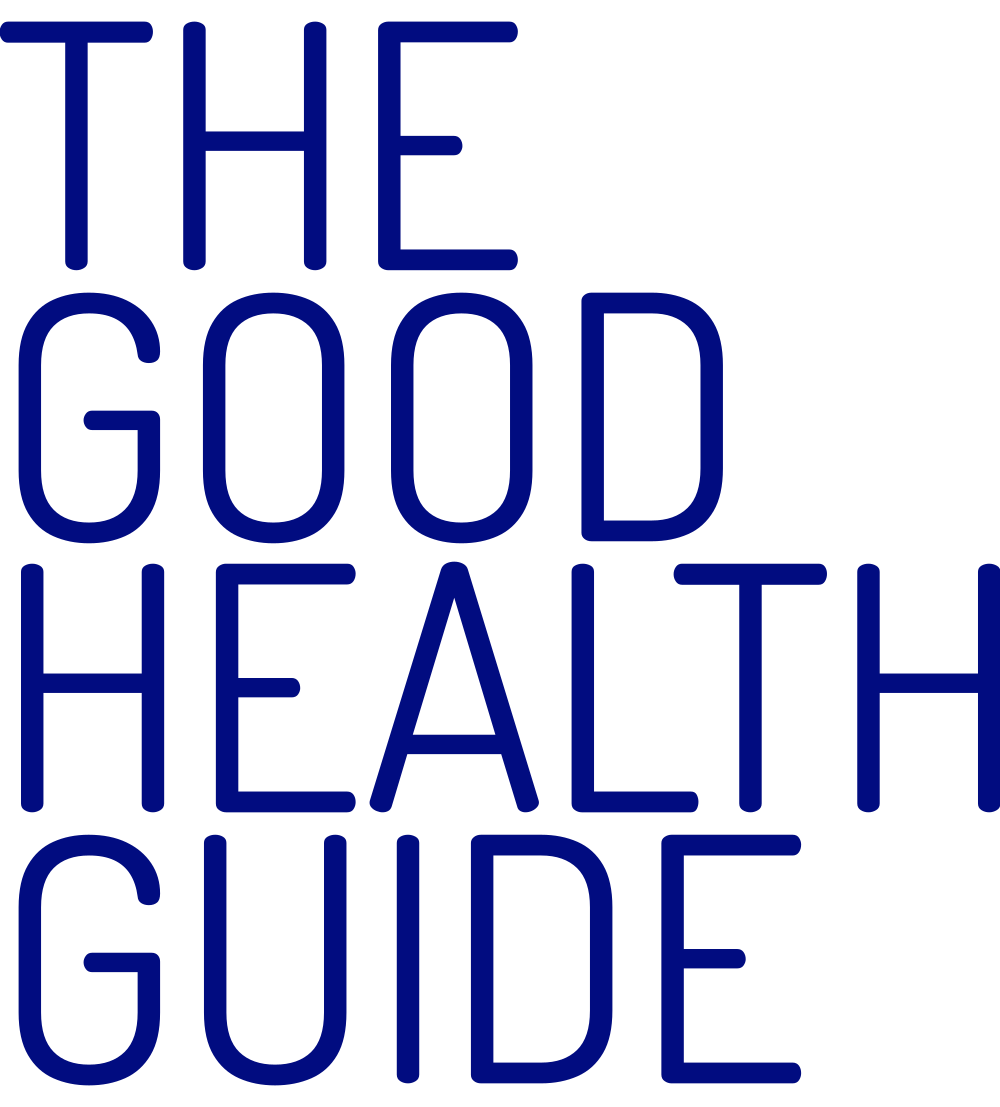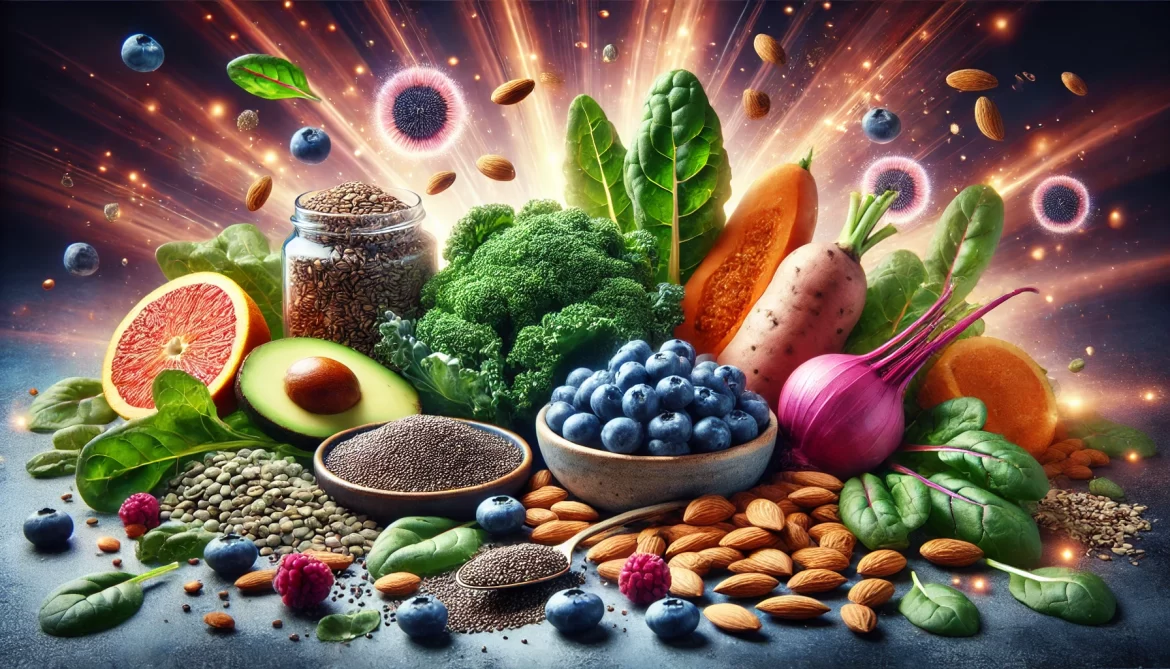Best Superfoods for Energy: Boost Your Vitality with These Nutrient-Packed Foods
Maintaining high energy levels throughout the day can be challenging, especially with the demands of modern life. Superfoods, packed with essential nutrients, can offer a natural and sustained energy boost. This article explores the best superfoods for energy, providing insights into how they work and how to incorporate them into your daily diet.
The Science Behind Superfoods
Superfoods are nutrient-rich foods considered to be especially beneficial for health and well-being. They contain a high concentration of vitamins, minerals, antioxidants, and other compounds that can boost energy, improve mental clarity, and enhance overall health. Understanding the science behind these foods can help you make informed dietary choices.
Berries
Berries are small, colorful fruits known for their high antioxidant content. They combat oxidative stress and inflammation, common culprits of fatigue.
Blueberries
Blueberries are particularly high in vitamin C and K, which support immune function and bone health, respectively. Their anthocyanin content also aids in reducing oxidative stress. Learn more about the benefits of blueberries.
Strawberries
Strawberries provide a good source of manganese and folate, essential for energy production and DNA synthesis. They also offer a refreshing burst of hydration. Read more about the nutritional value of strawberries.
Acai Berries
Acai berries, often touted as a superfood, are packed with antioxidants, fiber, and heart-healthy fats. They can be enjoyed in smoothie bowls or as a frozen treat. Discover the benefits of acai berries.
Nuts and Seeds
Nuts and seeds are compact powerhouses of energy. They provide a balanced mix of healthy fats, protein, and fiber, which help maintain steady blood sugar levels and sustain energy.
Almonds
Almonds are rich in magnesium, a mineral vital for energy production and muscle function. They also contain riboflavin, which helps convert food into energy. Learn more about the benefits of almonds.
Chia Seeds
Chia seeds are an excellent source of omega-3 fatty acids, fiber, and protein. These nutrients contribute to prolonged energy release and improved endurance. Discover the nutritional value of chia seeds.
Flaxseeds
Flaxseeds offer a high amount of dietary fiber and lignans, which are phytoestrogens with antioxidant properties. They can be added to smoothies, oatmeal, or baked goods. Read more about the benefits of flaxseeds.
Leafy Greens
Leafy greens are among the most nutrient-dense foods available. They are low in calories but rich in vitamins, minerals, and antioxidants that support energy metabolism.
Spinach
Spinach contains iron, which is crucial for oxygen transport in the blood. It also offers magnesium and potassium, important for muscle and nerve function. Learn more about the benefits of spinach.
Kale
Kale is packed with vitamins A, C, and K, and provides a significant amount of calcium. These nutrients support immune function, bone health, and energy metabolism. Discover the nutritional value of kale.
Swiss Chard
Swiss chard offers a variety of antioxidants, including betalains, which have anti-inflammatory properties. It’s also a great source of magnesium and iron. Read more about the benefits of Swiss chard.
Whole Grains
Whole grains provide complex carbohydrates, which are broken down slowly to provide a steady release of glucose into the bloodstream. This helps maintain energy levels throughout the day.
Quinoa
Quinoa is a complete protein, containing all nine essential amino acids. It’s also high in fiber, magnesium, and iron, making it a perfect energy-boosting food. Learn more about the benefits of quinoa.
Oats
Oats are rich in beta-glucan, a type of soluble fiber that slows the absorption of carbohydrates and prolongs energy release. They also contain important vitamins and minerals like manganese and phosphorus. Discover the nutritional value of oats.
Brown Rice
Brown rice offers a steady supply of energy due to its complex carbohydrate content. It also contains magnesium and B vitamins, which are essential for energy production. Read more about the benefits of brown rice.
Fatty Fish
Fatty fish are excellent sources of omega-3 fatty acids, which have been shown to reduce inflammation and improve brain function, thereby boosting energy levels and mental clarity.
Salmon
Salmon is high in omega-3s, protein, and B vitamins, all of which contribute to sustained energy. It also provides vitamin D, important for bone health and immune function. Learn more about the benefits of salmon.
Mackerel
Mackerel offers similar benefits to salmon, with a high content of omega-3s and vitamin B12, crucial for red blood cell formation and energy production. Discover the nutritional value of mackerel.
Sardines
Sardines are nutrient-dense and provide a significant amount of omega-3s, protein, and calcium. They are also a good source of vitamin D and B vitamins. Read more about the benefits of sardines.
Legumes
Legumes are a rich source of complex carbohydrates, protein, and fiber. They help stabilize blood sugar levels and provide lasting energy.
Lentils
Lentils are high in iron, which helps transport oxygen to the cells, and fiber, which aids in digestion and energy stability. They are also a good source of plant-based protein. Learn more about the benefits of lentils.
Chickpeas
Chickpeas offer a balance of carbohydrates and protein, making them an excellent food for energy. They also contain B vitamins, iron, and magnesium. Discover the nutritional value of chickpeas.
Black Beans
Black beans provide a high amount of fiber and protein, which help regulate blood sugar levels and maintain energy. They are also rich in antioxidants. Read more about the benefits of black beans.
Citrus Fruits
Citrus fruits are known for their high vitamin C content, which boosts immune function and helps reduce fatigue by enhancing iron absorption.
Oranges
Oranges are a classic source of vitamin C and provide a refreshing burst of hydration and energy. They also contain folate and potassium, which support overall health. Learn more about the benefits of oranges.
Lemons
Lemons are not only high in vitamin C but also offer detoxifying benefits. Adding lemon juice to water can help maintain hydration and energy levels. Discover the nutritional value of lemons.
Grapefruits
Grapefruits are rich in vitamins A and C, fiber, and antioxidants. They help boost immune function and provide a sustained release of energy. Read more about the benefits of grapefruits.
Fermented Foods
Fermented foods contain probiotics, which support gut health and improve nutrient absorption, leading to better energy levels.
Yogurt
Yogurt is a good source of probiotics and protein, both of which contribute to sustained energy. It also contains B vitamins, which are essential for energy metabolism. Learn more about the benefits of yogurt.
Kefir
Kefir is a fermented milk drink rich in probiotics, protein, and calcium. It supports gut health and provides a steady supply of energy. Discover the nutritional value of kefir.
Sauerkraut
Sauerkraut is fermented cabbage that provides probiotics and vitamin C. It aids in digestion and boosts overall energy levels. Read more about the benefits of sauerkraut.
Herbal Teas
Herbal teas can offer a gentle energy boost without the jittery effects of caffeine. They also provide various antioxidants and health benefits.
Green Tea
Green tea contains a moderate amount of caffeine and a high level of antioxidants, particularly catechins, which improve brain function and energy levels. Learn more about the benefits of green tea.
Ginseng Tea
Ginseng tea is known for its energizing properties and can help reduce fatigue and improve mental clarity. Discover the nutritional value of ginseng tea.
Matcha Tea
Matcha tea is a type of green tea that provides a higher concentration of antioxidants and caffeine. It offers a calm, sustained energy boost. Read more about the benefits of matcha tea.
Dark Chocolate
Dark chocolate is rich in antioxidants, particularly flavonoids, which can improve blood flow and reduce fatigue. It also contains a small amount of caffeine for a quick energy boost. Learn more about the benefits of dark chocolate.
Avocado
Avocados are packed with healthy fats, fiber, and B vitamins. These nutrients help sustain energy levels and improve cognitive function. Discover the nutritional value of avocado.
Sweet Potatoes
Sweet potatoes are a great source of complex carbohydrates, fiber, and vitamins A and C. They provide a steady release of energy and support overall health. Read more about the benefits of sweet potatoes.
Bananas
Bananas are rich in potassium, vitamin B6, and carbohydrates. They provide a quick and sustained energy boost, making them an ideal snack for active individuals. Learn more about the benefits of bananas.
Eggs
Eggs are a high-quality source of protein and contain essential amino acids, vitamins, and minerals that support energy production and muscle function. Discover the nutritional value of eggs.
Garlic
Garlic has been shown to reduce fatigue and increase endurance. It also offers a variety of antioxidants and anti-inflammatory compounds that support overall health. Read more about the benefits of garlic.
Beetroot
Beetroot is high in nitrates, which can improve blood flow and oxygen delivery to the muscles, enhancing endurance and energy levels. Learn more about the benefits of beetroot.
Turmeric
Turmeric contains curcumin, a powerful anti-inflammatory and antioxidant compound. It supports overall health and can help reduce fatigue. Discover the nutritional value of turmeric.
Water
Staying hydrated is crucial for maintaining energy levels and overall health. Water helps transport nutrients throughout the body and aids in digestion and detoxification. Learn more about the importance of hydration.
Superfood Smoothie Recipes
Integrating superfoods into your diet can be easy and delicious with smoothie recipes that combine various energy-boosting ingredients. Try these recipes for a quick and nutritious energy boost:
Integrating Superfoods into Diet
Incorporating superfoods into your daily diet can be simple. Start by adding a few of these nutrient-dense foods to your meals and snacks:
- Top your oatmeal with blueberries and flaxseeds.
- Add spinach or kale to your smoothies.
- Snack on a handful of almonds or chia seeds.
Benefits Beyond Energy
Superfoods offer a range of benefits beyond boosting energy. They support overall health, improve immune function, and may reduce the risk of chronic diseases. Learn more about the comprehensive benefits of superfoods.
Common Myths
There are many myths surrounding superfoods, such as the belief that they can replace a balanced diet. It’s important to understand that while superfoods are highly nutritious, they should be part of a varied and balanced diet. Read more about common myths about superfoods.
Conclusion
Incorporating the best superfoods for energy into your diet can help you maintain vitality and stay energized throughout the day. From berries and nuts to leafy greens and whole grains, these nutrient-packed foods provide a natural and sustained energy boost. For more information on healthy living, visit The Good Health Guide.
FAQs
What are superfoods? Superfoods are nutrient-rich foods considered to be especially beneficial for health and well-being. They are high in vitamins, minerals, and antioxidants.
How do superfoods boost energy? Superfoods boost energy by providing essential nutrients that support energy metabolism, improve blood flow, and reduce inflammation and oxidative stress.
Can superfoods replace a balanced diet? No, superfoods should be part of a varied and balanced diet. They are highly nutritious but cannot replace the need for a diverse range of foods.
Are there any side effects of eating superfoods? Generally, superfoods are safe when consumed in moderation. However, excessive intake of certain superfoods may cause adverse effects, such as digestive issues.
How can I incorporate superfoods into my diet? You can incorporate superfoods into your diet by adding them to smoothies, salads, snacks, and meals. Start with small amounts and gradually increase their inclusion in your diet.
Where can I learn more about superfoods? For more information on superfoods and their benefits, visit The Good Health Guide.

